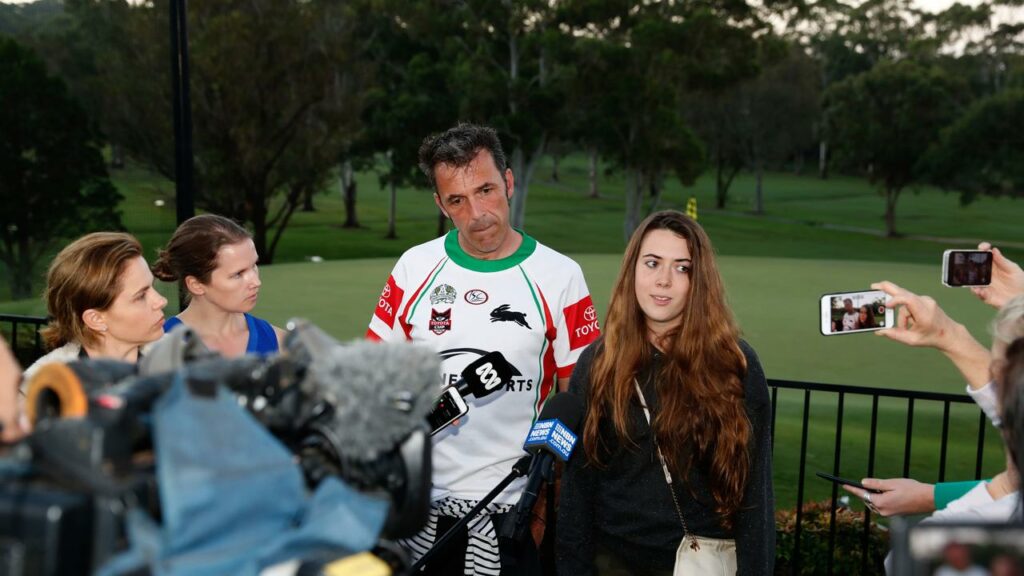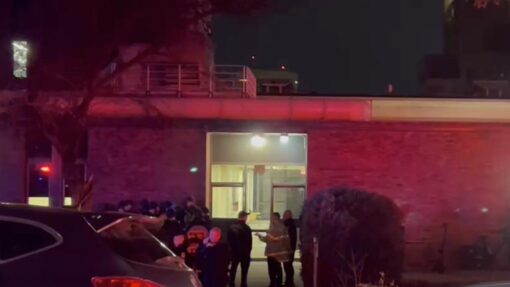How ‘ambiguous loss’ torments when a loved-one vanishes
Cassandra Morgan |

Lisa Hayez has spent her early 20s feeling like her life is on hold.
Every day, she wakes up under the crushing weight of ambiguous loss, wondering whether she will finally get an answer to the questions that has tormented her family for four years: what happened to her cousin Theo Hayez?
“(I have to) go to work, go to uni and live my own life, but with a big cloud over my head,” Ms Hayez told AAP.
“Some of us took a while to realise that this was our reality and are still living in hope that one day we will find out what happened, or we will find him.
“Other people in my family are like, ‘we might never know, and I need to start accepting that’.”
Theo, an 18-year-old backpacker from Belgium, disappeared from Byron Bay on the night of May 31, 2019.
His vanishing prompted a large-scale missing persons investigation and a search that has involved everyone from passionate local volunteers to online sleuths.
Last year, a coroner found the universally loved teenager probably died on or shortly after June 1, but mystery still surrounds the circumstances that led to his disappearance and likely death.
His body has never been found.
In the years since her cousin’s disappearance, Ms Hayez – who at 24 lives in Brisbane, away from her family in Europe – has felt isolated.
She’s dealt with frustrating therapists who failed to recognise the complexities of ambiguous loss and investigators who did not refer her to mental health support after the initial disappearance.
“They were really focused – which, in a way, is fair enough – on the investigation, but they were forgetting that we were the family … and it was a very, very hard time for us,” Ms Hayez said.
The Missed Foundation has offered Ms Hayez solace, support and connection.
On Sunday, the organisation launches an ambiguous loss masterclass to coincide with the start of National Missing Persons week.
Sarah Wayland, a University of New England associate professor and expert in trauma and loss, created the sessions.
She advises people whose loved ones disappear to firstly visit their local police station, even if the person has vanished in another state or territory.
Families and friends should think about what information will be most helpful for officers and determine how to best gather those details.
They should also consider how they might seek support from their community, harness the goodwill of people on social media and get advice from the foundation about how to issue a media release, Dr Wayland said.
Importantly, loved-ones of missing people should keep their basic needs in check and recruit people to take on tasks to ease their stress, even if that’s keeping watch for news while they rest.
“It’s all about trying to navigate each hour as it comes and not thinking too far ahead,” Dr Wayland said.
Ms Hayez said it was important that people did not try to compare their own experiences of grief with ambiguous loss.
All many families wanted was an acknowledgement they were going through a difficult time, Dr Wayland added.
“They don’t need you to solve the case for them, but they want you to keep turning up,” she said.
The first video of the masterclass is targeted towards the family and friends of missing people as well as the wider community and is free in a bid to fill a gap in support.
The number of Australians who are reported missing each year has risen from about 18,000 almost 20 years ago to more than 55,000 in 2022.
All but around one per cent are located, however around 2500 individuals are considered long-term missing persons.
Despite the large numbers, there are few funded support services in Australia for people whose loved-ones disappear.
AAP


